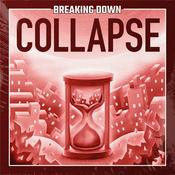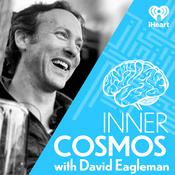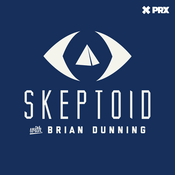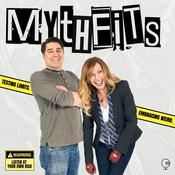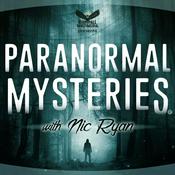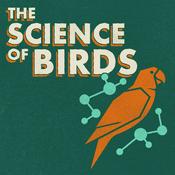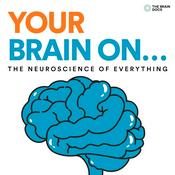288 episodes
- Send us a text
Your gut has tried to warn you before. That flicker when someone lingers by a bathroom door, shadows you to the elevator, or blocks your path with a smile and a prop—it’s not paranoia, it’s a baseline breaking. We dig into a practical method for spotting a cunning opponent early, whether it’s a low-level hustler at the pump or a higher-stakes actor at a major event. The mechanics of deception don’t change; only the stakes do.
We start by stripping away the jargon and defining terms that keep you clear-headed. Opponent isn’t “enemy”; it’s anyone competing for advantage in a shared environment. From there, we map the four recurring tools that reveal intent: access, blending, manipulation, and timing. You’ll learn how bad actors create closeness, hide in plain sight with props and roles, steer your attention, and pick their moment. Then we teach BASE—Baseline, Anomaly, Simplest explanation, Experiment—a concise loop you can run in real time to test what you think you’re seeing without overreacting.
You’ll hear concrete examples from gas stations, hotels, tourist piers, and event lines, plus how to communicate what matters with short, useful language that prompts action. We walk through MLCOA versus MDCOA to balance likely and dangerous interpretations, then show low-calorie experiments—changing angle, reversing course, quick contact, second set of eyes—that force a reaction and buy time and distance. If you can catch a shoplifter’s access play, you can disrupt a more serious plan using the same cues. This is situational awareness you can practice today: clean, repeatable, and calm under pressure.
If this helped sharpen your instincts, follow the show, share it with a friend, and leave a quick review. For deeper dives and drills, check out our Patreon and keep the reps going—training changes behavior.
Support the show
Website: https://thehumanbehaviorpodcast.buzzsprout.com/share
Facebook: https://www.facebook.com/TheHumanBehaviorPodcast
Instagram: https://www.instagram.com/thehumanbehaviorpodcast/
Patreon: https://www.patreon.com/ArcadiaCognerati
More about Greg and Brian: https://arcadiacognerati.com/arcadia-cognerati-leadership-team/ - Send us a text
When decisions can’t wait for perfect data, you need methods that actually work in the real world. We sit down with Brian Moon to pull naturalistic decision making out of journals and into the field where cops, medics, operators, and executives make consequential calls under stress, time pressure, and uncertainty. The conversation opens with a clear critique: elegant lab studies often miss the work. From there, we rebuild on stronger ground; agency, process, and the lived patterns of true expertise.
Brian traces why experience isn’t just hours served but exposure to hard problems, responsibility for outcomes, and honest feedback that reshapes judgment. We unpack how experts blend rapid recognition with deliberate checks, using counterfactuals to keep first interpretations from hardening too soon. If you lead training, you’ll get specific moves: design scenarios that force ownership of the whole problem; capture tacit cues through structured debriefs; and teach a shared language for uncertainty so teams can flexecute as conditions change. We also push into high-friction topics like use-of-force errors and pathways to violence, showing how process signals, not labels or post-hoc narratives, offer the best chance to prevent bad outcomes.
Across the hour, you’ll hear how to spot and grow real SMEs, why credentials alone fall short, and how to engineer environments where sensemaking becomes a habit instead of a hope. Whether you work a midnight shift or a corner office, you’ll leave with practical tools to clean up your decisions this week and a sharper lens for understanding human behavior where it actually happens: on the street, on the line, and in the moment. If this conversation helps, share it with a teammate, subscribe for more, and drop a review so others can find it.
Darwin's People: AMAZON
Support the show
Website: https://thehumanbehaviorpodcast.buzzsprout.com/share
Facebook: https://www.facebook.com/TheHumanBehaviorPodcast
Instagram: https://www.instagram.com/thehumanbehaviorpodcast/
Patreon: https://www.patreon.com/ArcadiaCognerati
More about Greg and Brian: https://arcadiacognerati.com/arcadia-cognerati-leadership-team/ - Send us a text
In today’s episode, we’re flipping the lens inward. You’ve heard us talk about reading the world around you — the external baseline — but what about reading yourself?
What It Is (Street Definition)
Your internal baseline is your mental operating system. It’s the framework that shapes how you see, think, and react under stress. It’s built from everything you’ve lived, learned, and believed:
Past Experiences: The lessons, scars, and memories that form your personal rulebook.
Training & Conditioning: The shortcuts and instincts your brain relies on when there’s no time to think.
Values & Beliefs: The unseen filters that shape what you think is right, wrong, or risky.
Policies & Procedures: The internal and external rules you follow (often unconsciously).
Cognitive Limits: The hard caps of being human: fatigue, stress, emotion, and biology.
The core question: “Where do I think I am — and where am I actually?”
The gap between what you believe and what’s real determines how well you can sense, decide, and act.
Support the show
Website: https://thehumanbehaviorpodcast.buzzsprout.com/share
Facebook: https://www.facebook.com/TheHumanBehaviorPodcast
Instagram: https://www.instagram.com/thehumanbehaviorpodcast/
Patreon: https://www.patreon.com/ArcadiaCognerati
More about Greg and Brian: https://arcadiacognerati.com/arcadia-cognerati-leadership-team/ - Send us a text
In this powerful and highly practical episode, we unpack one of the most important (and misunderstood) aspects of human behavior analysis: the concept of baseline plus anomaly equals decision (B + A = D).
During the episode, we dive deep into why our cultural obsession with "red flags" and anomalies often leads us astray, and why everything starts with understanding normal.
We also challenge the reactive approach to behavior analysis that seeks checklists for “bad actors” and instead, we show how developing a high-fidelity, context-rich baseline is the real key to situational awareness and predictive analysis. We briefly explore the origins of the Combat Hunter program, and provide real-world examples (from garbage day confusion to gas station parking lots), and illustrate how unconscious pattern recognition drives both correct and incorrect decisions.
Here's what you'll learn:
Why context is king in behavioral observation
How your brain already makes constant baseline-anomaly comparisons and how to do it better
Why focusing only on anomalies can lead to dangerous blind spots
How to build robust baselines using simple daily exercises
What professionals (LE, military, teachers, EMTs) can do to spot pre-event indicators earlier
This episode is a must-listen for anyone in high-stakes roles, parents, educators, or anyone who wants to improve their ability to "read the room" (and their world) with greater clarity and confidence.
Support the show
Website: https://thehumanbehaviorpodcast.buzzsprout.com/share
Facebook: https://www.facebook.com/TheHumanBehaviorPodcast
Instagram: https://www.instagram.com/thehumanbehaviorpodcast/
Patreon: https://www.patreon.com/ArcadiaCognerati
More about Greg and Brian: https://arcadiacognerati.com/arcadia-cognerati-leadership-team/ - Send us a text
What happens when theory meets reality in a life-or-death situation? Dan Chavez found out firsthand when he and his wife suddenly found themselves in the middle of an active shooter incident. In this riveting conversation, Dan walks us through the split-second decisions that likely saved his life and, more importantly, how his training in behavioral awareness created automatic responses that kicked in when his conscious mind had no time to deliberate.
The power of Dan's story lies not just in its intensity, but in how perfectly it illustrates why traditional approaches to training often fail. "Most training is descriptive rather than prescriptive," Dan explains. "You walk away thinking 'that was great, I'm more aware,' but it doesn't translate into actionable skills." As VP of Training Innovation and Performance, Dan brings a unique perspective that bridges academic understanding with real-world application.
This episode dives deep into the neuroscience of crisis response, examining how our limbic system takes control under threat and why the habits we've practiced become our default actions. We explore Human Performance Technology as an alternative to conventional training, starting with organizational outcomes rather than learning objectives, and measuring success through observable behavioral changes rather than classroom hours.
Whether you're responsible for training others or simply want to better prepare yourself for high-stress situations, this conversation offers invaluable insights into how genuine proficiency develops. As Dan discovered in that bar when shots were fired, the difference between theoretical knowledge and trained behavior can mean everything when seconds count.
Support the show
Website: https://thehumanbehaviorpodcast.buzzsprout.com/share
Facebook: https://www.facebook.com/TheHumanBehaviorPodcast
Instagram: https://www.instagram.com/thehumanbehaviorpodcast/
Patreon: https://www.patreon.com/ArcadiaCognerati
More about Greg and Brian: https://arcadiacognerati.com/arcadia-cognerati-leadership-team/
More Science podcasts
Trending Science podcasts
About The Human Behavior Podcast
Do you ever wonder why people act the way that they do? Join human behavior experts Brian Marren and Greg Williams as they discuss all things human behavior related. Their goal is to increase your Advanced Critical Thinking ability through a better understanding of HBPR&A (Human Behavior Pattern Recognition & Analysis.) What is HBPR&A? It's a scientific (and fun) way to understand and articulate human behavior cues so that you can predict likely outcomes and it works regardless of your race, religion, political ideology or culture!
Podcast websiteListen to The Human Behavior Podcast, The Infinite Monkey Cage and many other podcasts from around the world with the radio.net app

Get the free radio.net app
- Stations and podcasts to bookmark
- Stream via Wi-Fi or Bluetooth
- Supports Carplay & Android Auto
- Many other app features
Get the free radio.net app
- Stations and podcasts to bookmark
- Stream via Wi-Fi or Bluetooth
- Supports Carplay & Android Auto
- Many other app features


The Human Behavior Podcast
Scan code,
download the app,
start listening.
download the app,
start listening.













